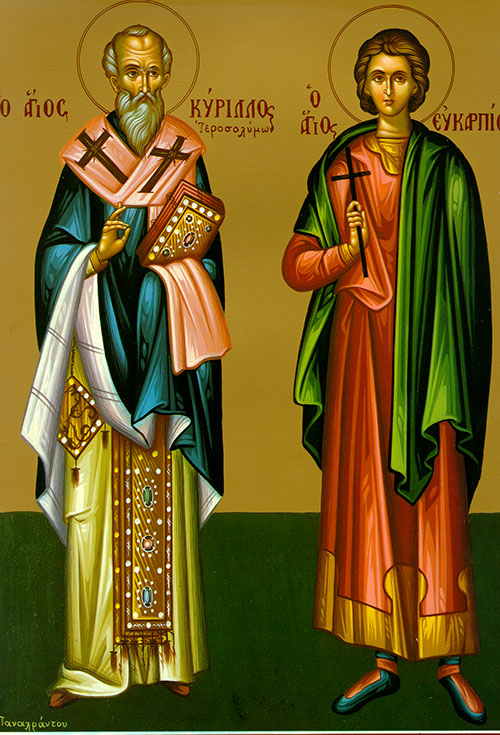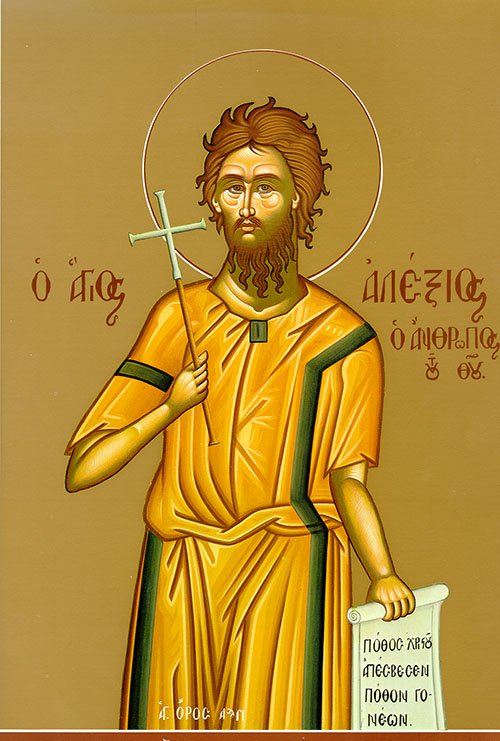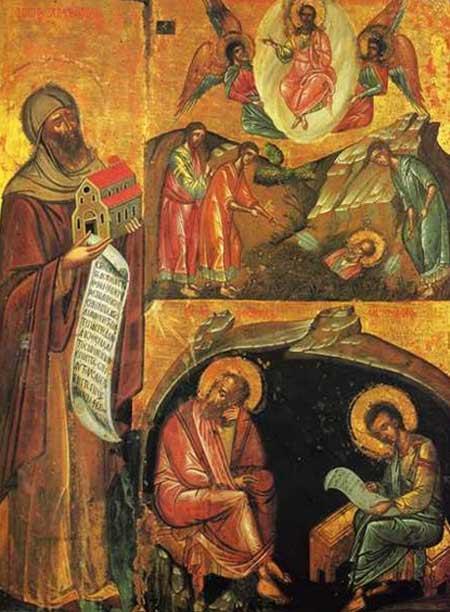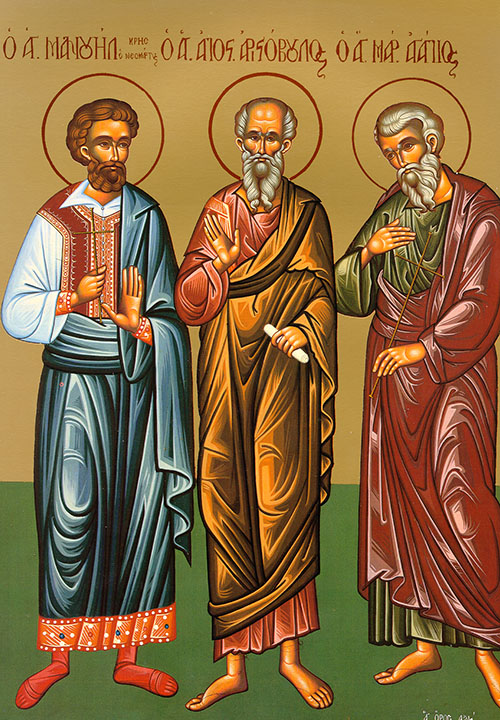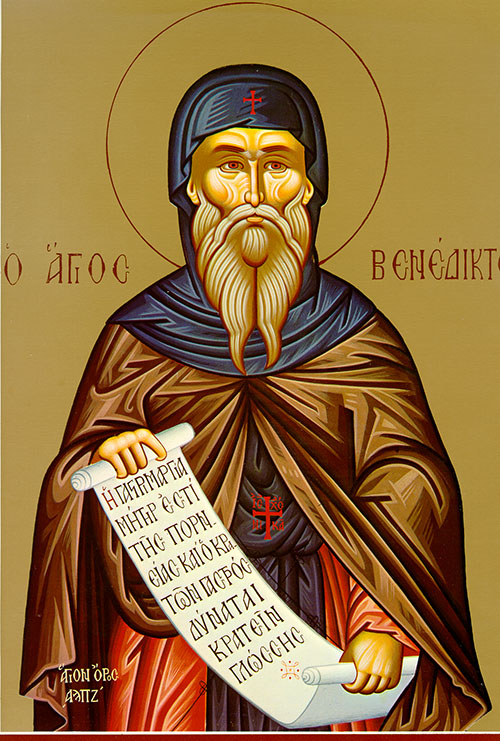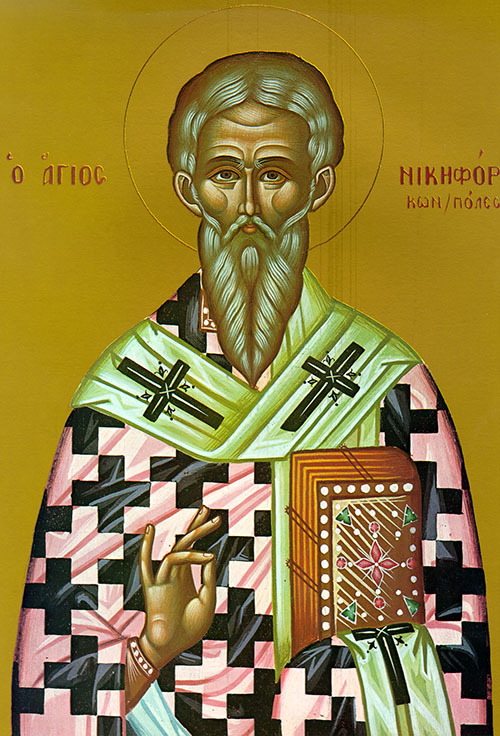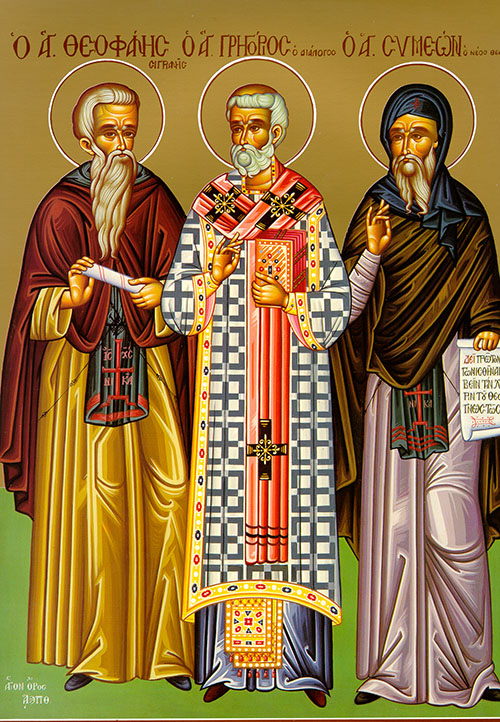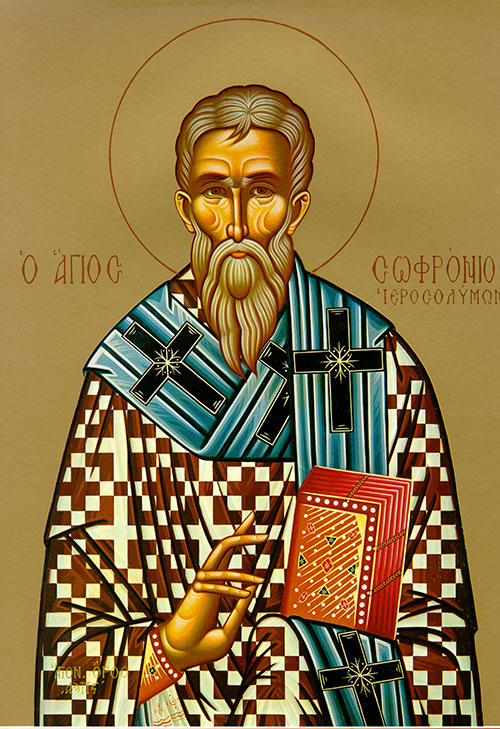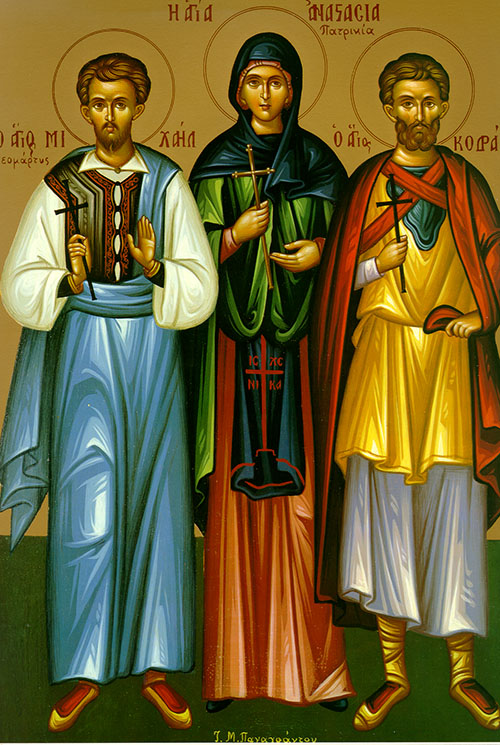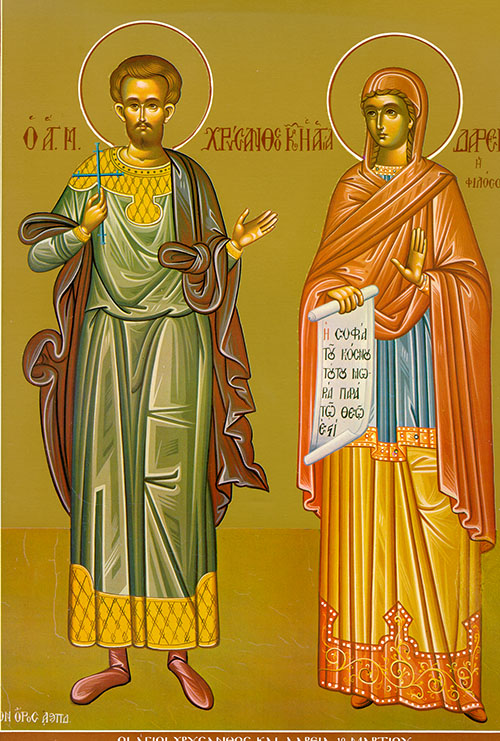

The holy martyr Chrysanthus came from a pagan family who moved from Alexandria to Rome in the third century. He received a fine education, and among the books he read were those in which pagans discussed Christianity. The young man, however, wanted to read books written by Christians themselves. He finally managed to get a copy of the New Testament, which enlightened his rational soul. Seeking someone to instruct him in the Holy Scriptures, he found the presbyter Carpophoros hiding from persecution, and the saint received holy Baptism from him. After this, Chrysanthus began to preach the Gospel. His own father tried to turn him in for being a Christian, and finally, he married him to Daria, a priestess of Minerva. St. Chrysanthus managed to convert his wife to Christ, and the young couple agreed to live a celibate lives. After the death of his father, Chrysanthus and Daria began to live in separate houses. St Chrysanthus converted several young men to Christ, and many pious women gathered around St. Daria. The people of Rome complained to the eparch Celerinus that the saints were preaching celibacy and attracting too many young men and women to monasticism. St. Chrysanthus was sent to the tribune Claudius for torture. The emperor Numerian ordered Saints Chrysanthus and Daria be turned over to the executioners. After many cruel tortures, the martyrs were buried alive in the ground.
Troparion
O Lord our God your holy martyrs have deserved the crown of immortality on account of their good fight. Armed with your strength, they have vanquished their persecutors and crushed Satan’s dreadful might. Through their supplications, O Christ our God, save our souls.
Kontakion
In your desire for the perfect Good, you pursued whatever good you saw. By your golden words, Chrysanthus, you led the glorious Daria to Christ. She endured many torments and shamed the enemy. We ask both of you to remember us who keep your memory.
Readings for the day
Genesis 7: 6-9
Noah was six hundred years old when the flood came upon the earth. Together with his sons, his wife, and his sons’ wives, Noah went into the ark because of the waters of the flood. Of the clean animals and the unclean, of the birds, and of everything that crawls on on the ground, two by two, male and female came to Noah into the ark, just as God has commanded him.
Proverbs 9: 12-18
If you are wise, wisdom is to your advantage; if you are arrogant, you alone shall bear it.
Woman Folly is raucous, utterly foolish; she knows nothing.
She sits at the door of her house upon a seat on the city heights,
Calling passersby as they go on their way straight ahead:
“Let those who are naive turn in here, to those who lack sense I say.
Stolen water is sweet, and bread taken secretly is pleasing!”
Little do they know that the shades are there, that her guests are in the depths of Sheol!
Icon courtesy of Jack Figel, Eastern Christian Publications – ecpubs.com


